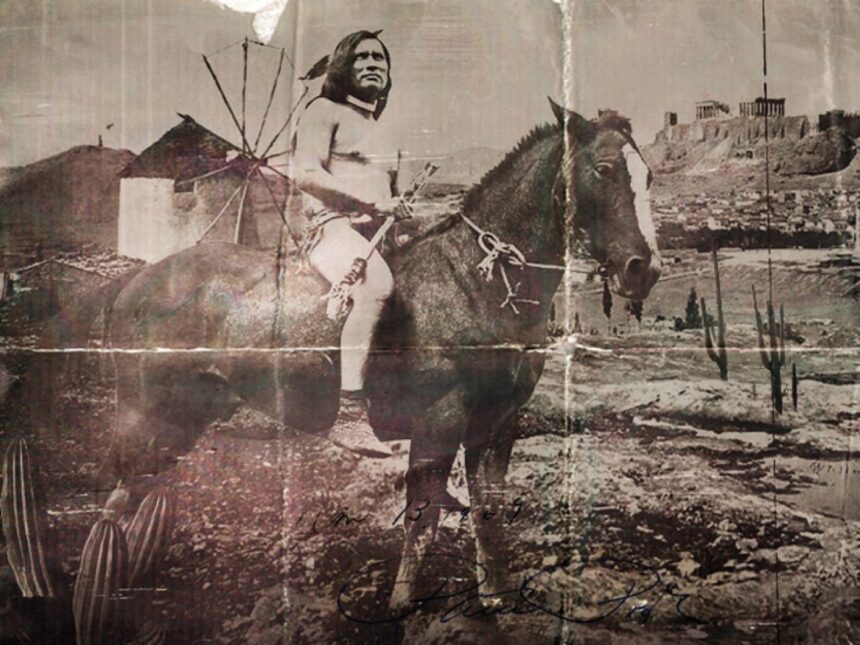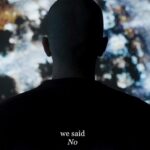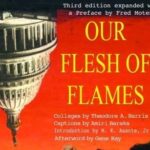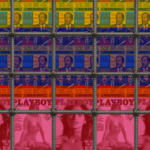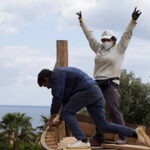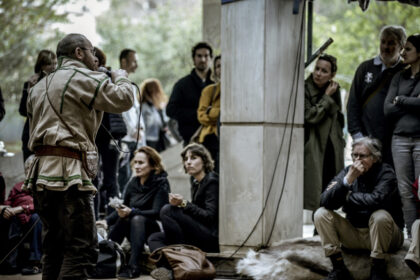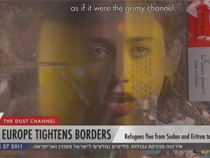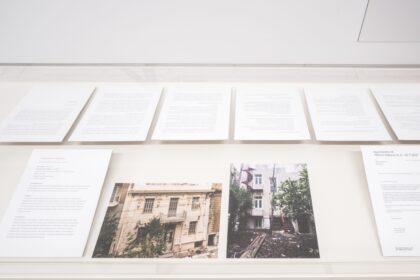Southern Teachers
Panos Sklavenitis
Α Kawakwaka’wakw, Nisga’a and Tsimshian ritual specialist, a Sámi political rights activist, and an ecosexual performer walk into an Athens bar…
…Although this unlikely encounter might have happened during documenta 14’s presence in Athens, let’s leave bar jokes aside for a moment. What do all these radically heterogeneous participants, notwithstanding perhaps their allegedly exotic status, have in common, except for the fact that they became central figures in documenta 14’s public program? The “Parliament of Bodies”, unable (or unwilling) to highlight the differences between them, eventually contributed to their stereotyping.
Paul B. Preciado, the curator of the aforementioned program, criticized the modern colonial geography but unintentionally slipped into its opposite, the romanticization of a global south of resistance, by uncritically promoting the promise of a revolutionary queer south. Moreover, he felt entitled to playfully redefine this geography as he pleased: ‘Each space has a north and a south and Athens is not the South, nor is Kassel the North.’ In response, the Southern Teachers workshop, which took place during the closing event of the “Learning from documenta” project, was motivated to collectively and critically review the kind of ‘geographies’ implicated in and throughout the discourse of the organizers of d14. We were particularly interested in the idea of the global south adopted in the writings of Paul Preciado.
It seems that there is a geography of everything: a geography of political and artistic interest, a geography of wealth distribution, and a geography of crisis; there are geographic inequalities, privileges, and debts. In these discourses, one can easily notice the conscious or unconscious exoticization of Athens and the unbecoming sycophancy towards this long-suffering city in south-eastern Europe: “Might it be possible to think the Greek notion of eleftheria (freedom) against the capitalist notion of freedom?” Preciado wonders. But the word ‘eleftheria’ does not mean anything different than ‘freedom’, not in documenta’s discourse, nor in any other context. This statement would amount to harmless pathos, a misguided attempt to create content in situ, if it didn’t fundamentally misrecognize the broader Greek context and wasn’t inadvertently and quite problematically flirting with a nostalgic patriotic rhetoric that is very common among far-right circles in Greece.
Elsewhere in Preciado’s writings, we find the romanticization of the Greek crisis in the most unlikely places: “In the apartment of Marina Fokidis, (the documenta 14’s Head of the Artistic Office in Athens) where the contrast between the heated room and the rest of the house has attracted cockroaches […] Who is the Greek debt keeping warm?”
On maps, the South is typically depicted as both “down” and “under”. The under is evil (at least when it is compared with what is above). God, light, heightened desires and erect penises are all “up”. Beneath, is the underworld.
In the Southern Teachers workshop, the South was not strictly perceived as a geographical location, but it was rather defined as a cultural geography of the Other. More precisely, the workshop considered the location of this Otherness as analogous to the position the South occupies on the map. The Other: the weak, the poor, the oppressed, the naive, the hobo, the underdeveloped, the woman, the homosexual, the trans, the black, etc., finds oneself perpetually underneath. The Southern Teachers workshop invited artists, architects and theorists to make–through diverse individual and/or collective actions such as performances, installations, discussions, etc.–an artistic mapping of the contemporary South. We focused on narratives inspired by the curatorial practices of d14, wherein the South was considered to be a prosperous field for alternative social, financial, and political practices flourishing bottom-up, that can and should be taught to others. But this noble didactic aim begs the question of what is being taught and to which “others”.
The Southern Teachers took place with the participation of Jarri Castro (art critic and theorist), Αlkisti Efthymiou (museum studies, gender studies), Alexis Fidetzis (visual artist), The Flower Girls (Eleftheria Kotzaki, Christina Spanou, Dimitra Stamatopoulou) (visual artists), Vana Kostayola (visual artist, media theorist, curator), Chrisoula Lionis (visual culture theorist), Iris Lykourioti (architect), Pinar Ogrenci (artist, writer; founder of MARSistanbul), Eliana Otta (visual artist, cultural studies), Lykourgos Porfyris (visual artist), Gian Spina (researcher, writer, visual artist), Kostis Stafylakis (visual artist, art theorist, curator), Adonis Stoantzikis (visual artist), Michailangelos Vlassis-Ziakas (visual artist). The concept and the coordination of the workshop belonged to the artist Panos Sklavenitis.










Panos Sklavenitis was born and brought up in Ulysses’s island, Ithaka. That’s why he knows the Greek sun and the Greek sea very well. When he was little he attended PIKPA primary school, known, amongst other, for offering education to kids with special needs. Until very recently, Sklavenitis didn’t know that PIKPA was such an institution. As with the artists of the Russian avant-garde, Sklavenitis devoted many years to the applied arts as a graphic designer, until he decided that fine arts is also OK. He is interested in masquerade, satire, overidentification and performative methods. He is closely collaborating with anthropologists and archeologists in order to study how subjects operate in the culture industry with other civilized subjects. Sklavenitis is an experienced teacher, as for many years now he makes his living as a drawing teacher. He frequently uses his students in his projects.

